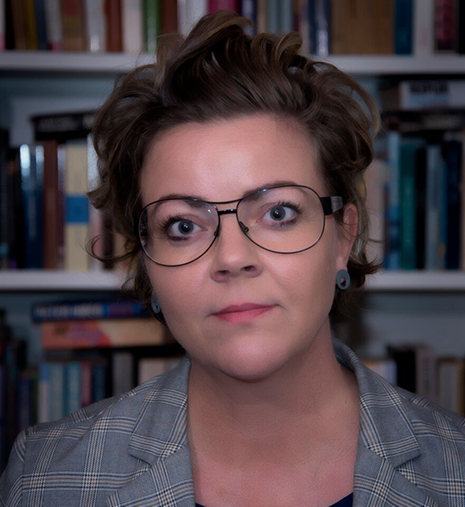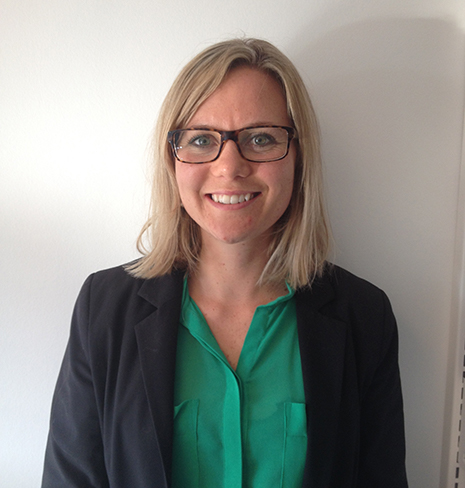Doctors and patients break the norms for e-consultations
E-consultations with a general practitioner (GP) should be used for communication of the type ‘one question – one answer’. However, this does not always happen in practice. This is shown by an analysis of general practitioners' e-consultations, which researchers from Aarhus University are behind.


Many patients make use of the opportunity to write to their GP online. General practitioners have been offering online consultations since 2009, and in 2020, a total of 9.1 million e-consultations were sent. This corresponds to 25 per cent of all consultations in general practice.
"E-consultations are used as a flexible way to send and receive short messages, but they’re also used for a lot of other things besides. This can be seen in the many emails that both patients and doctors write," says one of the researchers behind the study, Jane Ege Møller from Aarhus University.
Asking too many questions
The study shows that both doctors and patients break the standard procedure of 'one question – one answer' and ask each other multiple questions.
In the collective agreement covering general practice, e-consultations are described as 'simple, concrete queries that are not acute and do not require supplementary questions from the doctor.'
“We see examples of both doctors and patients breaking the standard procedure of 'one question – one answer' and asking each other multiple questions. In fact, it can also be difficult to assess what a 'simple query’ is when it comes to a person’s health. And what is concrete enough for it to be the subject of an e-consultation," says Matilde Nisbeth Brøgger, who is also behind the study.
The results of the study have been published in the scientific journal Conjunctions.
Lack of directions
The researchers have analysed 1,671 e-consultations from patients aged 21-91, while at the same time collecting information from general practitioners' websites regarding the framework for e-consultations.
E-consultations are remunerated at DKK 46.47 per consultation, but the doctor's response to any additional questions from the patient are not remunerated. The same applies to the doctor's rejection of the patient's request for e-consultation.
According to Matilde Nisbeth Brøgger, one of the challenges is that both doctors and patients have been 'unleashed' on a platform without receiving any specific guidelines for their communication.
"The doctors should be more aware and conscious of the possibilities and limitations of this form of communication. They’ve been thrown headfirst into a new form of communication without guidelines and training. The same is true of the patients," says Matilde Nisbeth Brøgger.
Many GPs’ websites state that the e-consultation "must not be used for urgent queries".
Complex problems
"We know from oral doctor-patient communication that urgent does not always have a single, clear meaning. Some patients book an urgent appointment at the GP because their problem is urgent in the sense if 'now I’ve waited so long, I can’t wait any longer', which is a different definition to that of the GP, which refers to ‘urgently occurring’ or urgently in need of treatment'," says Jane Ege Møller.
The study also shows that both doctors and patients use e-consultations for issues of more complex character.
"These can be messages that deal with the patients' emotional life, social context and life situation, which are in play in many e-consultations. In theory, the problems the patient is experiencing may be simple, but in reality they’re more complex, just as the doctor's messages can also be more complex,” says Matilde Nisbeth Brøgger.
According to the researchers, there is still a lack of knowledge about how e-consultations are incorporated into doctors’ working life, and about when they respond to e-consultations, and their reflections on the language and form of the text.
Background for the results
The study is a qualitative study of e-consultations.
Partners: Maja Nordtug, Antoinette Fage-Butler, Kasper Poulsen, Anette Mønster, Jakob Gravningsbråten, Anette Grønning, Elisabeth Assing Hvidt.
The study is funded by an AUFF Starting Grant.
The scientific article can be read in Conjunctions
Contact
Jane Ege Møller
Aarhus University, Department of Clinical Medicine
(+45) 2291 2977
jane@clin.au.dk
Matilde Nisbeth Brøgger
Aarhus University, School of Communication and Culture
(+45) 8716 5456
matnj@cc.au.dk